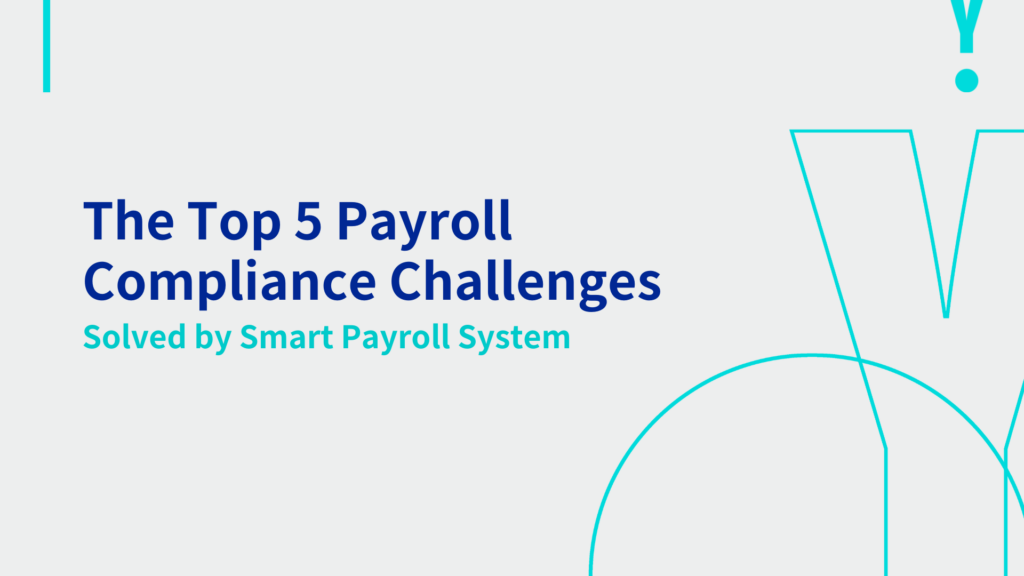
Running a growing business is fulfilling. Yet, every business owner knows the stress of staying compliant with payroll-related rules. Tax laws shift frequently. Regulations vary across states or even cities. One small error might cause hefty fines or audits. These financial setbacks impact your cash flow and your company’s reputation.
As businesses expand, managing employees, contractors, and freelancers adds layers of complexity. You might operate in multiple states or even overseas. Each location has unique tax rules and worker classification standards. Handling all this manually drains valuable hours better spent on growth and strategy.
Modern smart payroll systems now solve these problems efficiently. They streamline tedious tasks, automate complex calculations, and offer real-time updates. As a result, they protect you from costly surprises and free you to focus on what matters—your people and your profit.
Let’s break down the five biggest payroll compliance headaches in the coming sections. Discover how smart systems help your business stay compliant, efficient, and ready to grow.
- Tax Filing Errors: An Expensive Compliance Nightmare
- Why Do Tax Filing Errors Happen So Easily?
- How Smart Systems Keep Tax Filing Accurate?
- Contractor Vs. Employee Classification: Avoid Costly Misclassification
- Keeping Up with Constantly Changing Payroll Regulations
- Time & Attendance Discrepancies: Hidden Risks for Compliance
- Managing Payroll for A Global or Diverse Workforce
- Why Smart Payroll Systems Are No Longer Optional?
- End Note
Tax Filing Errors: An Expensive Compliance Nightmare
One of the biggest fears for any business owner is a tax filing mistake. Many businesses get caught by surprise during audits. Simple errors can trigger huge fines, back payments, and interest charges.
Why Do Tax Filing Errors Happen So Easily?
Tax laws don’t stand still. They change often, sometimes every year, sometimes mid-year. On the other hand, many small business owners rely on manual calculations. Spreadsheets or handwritten forms are risky and outdated. Even a misplaced decimal point creates expensive errors.
Moreover, if you hire remote employees across states, you face multiple filing requirements. One missed jurisdiction triggers penalties and unwanted attention from tax authorities.
How Smart Systems Keep Tax Filing Accurate?
Smart payroll platforms stay updated with real-time tax tables. As soon as a new rate comes out, your system adjusts calculations automatically. Automated tax filing also reduces missed deadlines. You’ll get timely reminders before forms are due. Some solutions even e-file directly with federal, state, and local tax offices.
Additionally, you can generate detailed reports for easy review. This transparency builds confidence that your filings are accurate and up-to-date. Lastly, during audits, digital records help. Every calculation and update is traceable.
You stay protected with solid documentation.
Contractor Vs. Employee Classification: Avoid Costly Misclassification
Misclassifying workers is another trap many businesses fall into. It might seem minor at first. However, penalties and back pay demands can devastate your budget.
Why Do Businesses Misclassify Workers?
Firstly, the difference between an employee and an independent contractor isn’t always clear-cut. Freelancers might work fixed hours. They might use your equipment. These details blur lines.
Secondly, every state—and even the IRS—has its criteria. Many owners assume one rule works everywhere. It doesn’t. Finally, some businesses try to cut costs by treating workers as contractors. This might reduce taxes upfront, but it’s risky. Misclassification fines cost far more than any short-term savings.
How Smart Payroll Systems Solve Worker Classification?
- Modern platforms provide worker classification guides and checklists. These tools help you determine whether a worker meets contractor or employee standards.
- Furthermore, the system keeps classification records. If authorities question your status choice, you have evidence to back it up.
- Integrated HR tools add another layer of protection. They align contracts, pay rates, and work arrangements. Everything stays consistent with the worker’s status.
Keeping Up with Constantly Changing Payroll Regulations
Payroll compliance is a moving target. Laws change at the federal, state, and local levels. If you’re not up to date, you’re out of compliance.
Why Regulatory Updates Are Hard to Track?
First, there’s no universal source for updates. Rules might come from labor boards, tax authorities, or new legislation. Therefore, businesses operating in multiple states face different wage laws, leave requirements, and tax codes. One oversight can ruin an otherwise spotless record.
Non-compliance goes beyond financial penalties. It erodes trust with employees. Workers expect their paychecks to be accurate, timely, and legal.
How Smart Systems Keep You Compliant?
A modern payroll system doesn’t just calculate paychecks. It continuously monitors legal updates and pushes alerts when changes impact your business. When a law changes, automated payroll engines adjust calculations. There’s no lag time, so you stay compliant.
Compliance dashboards add transparency. You’ll see your risk exposure at a glance. This helps you fix small issues before they become serious problems. Smart systems also keep all documentation digital and secure. If regulators request proof, you have clear audit trails.
Time & Attendance Discrepancies: Hidden Risks for Compliance
Accurate time and attendance tracking is crucial. Inaccuracies lead to wage disputes, labor lawsuits, or expensive back pay.
Why Time Tracking Goes Wrong?
Manual timesheets are notorious for errors. Employees forget clock-in times. Supervisors may round hours up or down inconsistently. However, hybrid work arrangements complicate things. Tracking remote employees is difficult if you lack reliable tools.
Hence, time theft is more common than you’d think. “Buddy punching,” where an employee clocks in for someone else, remains a hidden compliance threat.
How Smart Systems Make Time Tracking Foolproof?
Smart payroll software systems integrate with biometric devices, apps, and secure portals. Employees clock in using a fingerprint, face scan, or GPS. Hence, the best payroll system reduces buddy punching and false entries. Managers receive real-time alerts for overtime or missed punches.
Approval workflows make everything clear. Managers approve hours with a single click, preventing unauthorized changes. Every change is tracked. If an employee questions hours, you have detailed logs to resolve disputes.
Managing Payroll for A Global or Diverse Workforce
Business growth means hiring talent anywhere. However, cross-border or diverse teams create complex compliance needs.
Why Diverse Workforces Challenge Compliance?
International hires mean new tax treaties, local employment laws, and unfamiliar deductions. Seasonal or temporary staff require fast onboarding and offboarding. Missed final checks or tax forms invite fines.
How Smart Systems Support A Diverse Workforce?
- Cloud payroll software handles multiple currencies and tax jurisdictions automatically. They calculate exchange rates and local deductions correctly.
- Integrated invoicing ensures contractors and gig workers receive accurate, on-time payments.
- Onboarding tools collect necessary documents upfront. Automated reminders keep tax forms and final payments from slipping through the cracks. As your team expands globally, your system scales with you—no extra hassle.
Why Smart Payroll Systems Are No Longer Optional?
Payroll compliance errors are more than just costly; they distract you from growth. A modern system is an investment in stability and reputation. Smart payroll-related solutions handle complex tax filings, classification, and local laws automatically. They improve accuracy, cut manual work, and build trust with your employees.
Plus, they provide clear reporting and secure data storage. You’re always prepared for an audit or employee question. Best of all, you gain peace of mind. You spend less time worrying about fines and more time building your business.
End Note
Staying compliant in today’s fast-changing business world isn’t easy. But you don’t have to do it alone. A smart payroll system does the heavy lifting. It automates taxes, clarifies worker status, tracks attendance, manages expenses, and adapts as you grow.
So, don’t wait until you’re stuck with an audit or a lawsuit. Invest in a system that keeps your business protected. Want help choosing the best-fit payroll solution?
Let’s connect with us at YOOV and find the right tools for your business. Hence, stay compliant, build trust, and grow confidently.
Connect with YOOV

WhatsApp:Click Here
Email:hello@yoov.com
Website:https://www.yoov.com/